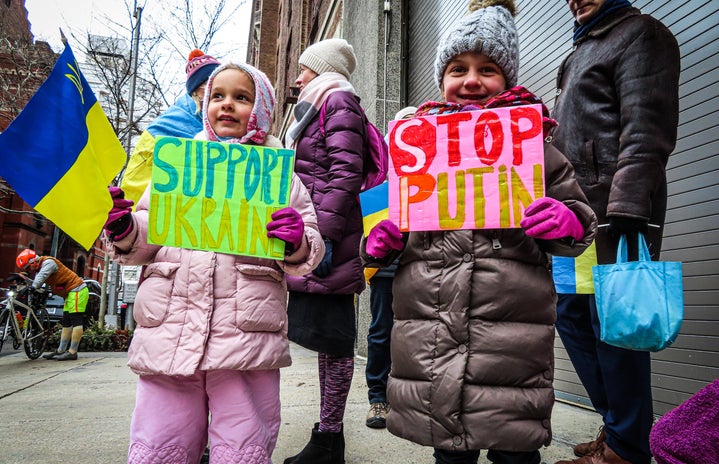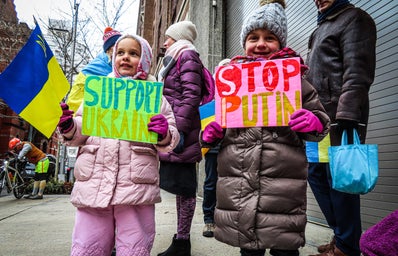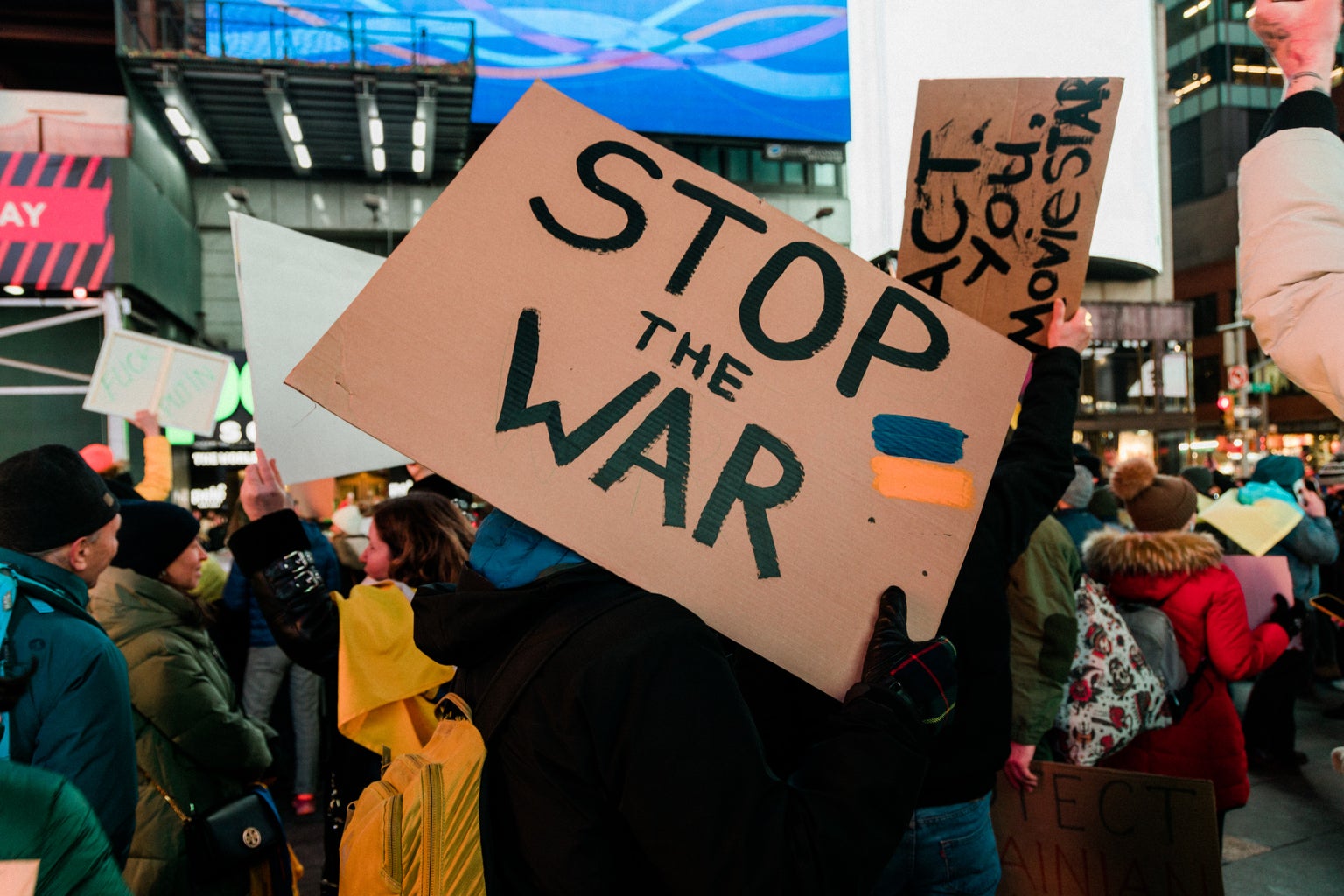‘No To War’ is the slogan brandished by many Russian protesters as they take to the streets to speak out against Putin’s invasion of Ukraine, whose military campaign began nearly 2 weeks ago. Condemned by the global community, Putin has nonetheless continued his ‘war’ (a controversial word under the Kremlin government), one that has caused the deaths of at least 350 Ukrainian civilians and injured over 2000 more.
Kyiv and other major Ukrainian cities are under heavy assault. On the second day of the invasion, tanks were seen in Kyiv, which is still holding out but being approached by more Russian military forces. Kherson was the first major Ukrainian city to fall, and the port city Mariupol is being faced with intense shelling, as well as no light, heat or water available for those trapped in the city.
The invasion follows the 2014 ousting of the pro-Russian Ukrainian president, which led to Russian annexation of Crimea, and the sparking of separatist rebel movements in Eastern Ukraine. Russia has long resisted Ukraine’s gradual movement towards the EU and NATO and in late 2021, Putin began stationing troops near the Ukrainian border, but repeatedly declared that there were no plans to attack. This is a line which changed rapidly on February 24th, when airstrikes, bombing and movement of ground forces began.
Putin has attempted to justify the invasion of Ukraine by claiming that Russia could not feel ‘safe’ with the ongoing ‘threat’ of Ukraine, and indeed holds the opinion that his actions are a ‘peace-keeping operation’ to ‘de-Nazify’ Ukraine. The claim is a bizarre and unfounded one- Ukraine is a democracy led by a Jewish president, Volodymyr Zelensky, who has instead likened Russia’s actions to that of Nazi Germany. No countries have committed ground troops to fight against Russia, with the underlying threat of nuclear weapons ensuring NATO will not be directly involved. However, the UN has condemned Putin’s actions on a vote of 141 out of 193 countries. Many other countries, including the UK, have provided Ukraine with weapons to defend themselves with, implemented heavy sanctions, and seen widespread protest from the global public.
The most notable protests have been from Russia itself, where more than 50 Russian cities saw people protesting on the streets mere hours after the declaration of war under the banner ‘No To War’. This is despite warnings of ‘severe legal consequences’ for anyone found dissenting against the Kremlin. This is on the heels of brutal crackdowns on protests last year, ones which saw the opposition leader Alexei Navalny jailed for a minimum of 2 years. Over 1,800 people were detained on the first day of protests, and that number has grown to an estimated 6,800 by March 3rd. Over 43 other countries have seen protests, with 100,000 people protesting on the streets of Berlin and another 250,000 in Cologne.
Russian celebrities like comedian Ivan Urgant have spoken out against Putin, and faced immediate blacklisting. Over 300 journalists (including representatives of Russian state-run media) signed an open letter condemning the war, which led to organiser and prominent journalist Elena Chernenko losing her access to the government pool, where she has worked for the past 11 years. Many of those speaking out against Putin were previously thought to be neutral or pro-Putin. The notable exception in this has been the political sphere itself- most politicians have remained silent or supported the Kremlin.
The Kremlin crackdown on media goes further, with Facebook and Twitter being partially blocked, and the word ‘war’ itself forbidden from usage since the invasion has been deemed a peace-keeping ‘special operation’. Anyone using the word ‘war’ to describe Ukraine risks 15 years of ‘detention’ if prosecuted, but Russian opposition leaders have continued to call for protests to ‘fight for peace’ between the two countries, including Alexei Nalvalny from his court trial.
There are calls for a mass anti-war protest on March 6th, from within and outside of Russia, and although the protests are unlikely to change Putin’s actions, they clearly demonstrate the growing dissent of the Russian public with Putin.



